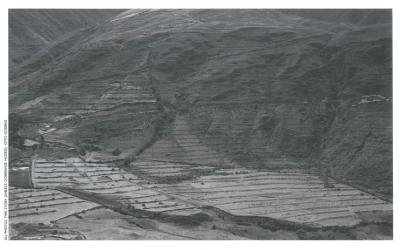Peanuts, Popcorn, Cracker Jack
The Latin American Origins of U.S. Commercial Snack Food
While peanuts and popcorn were new to 19th century United States, both had been consumed as snacks in the Americas for thousands of years. Peanuts originated in Bolivia, domesticated by indigenous people. They spread west to Peru, east to Brazil, north to Central America, where the Spanish Conquistadores encountered them after 1519. The Portuguese found them in Brazil and introduced them to Africa. As the slave trade expanded from Africa, peanuts were introduced into the Caribbean as a slave food and then migrated to southern British colonies in North America during the mid-18th century. Before the 19th century, peanut oil was manufactured in Europe and America, mainly for lubricating and lighting, since it was considered inferior to lard and olive oil for cooking. Peanuts were fodder for livestock. Native Americans and poor whites ate peanuts, and southern farmers exported them to northern cities, where roasted peanuts became the United States’ first snack food.
Popcorn, a variety of maize domesticated in southern Mexico and northern Guatemala, has a hard outer hull or endosperm. When the kernels are heated, moisture inside converts to steam, and pressure builds up until the hull explodes. Though popcorn varieties were grown throughout the pre-Columbian Americas, they were not being cultivated in what is now the United States before the Europeans arrived. U.S. sailors probably took some popcorn from Chile around 1800. Whatever the origin, popcorn spread quickly through the eastern states, the south, and the midwest. With the invention of the corn popper around 1837, popcorn became the United States’ first food fad. Wagon loads of popcorn balls were sold in Boston by the late 1840s.
Spring/Summer 2001
Andrew Smith, author of Popped Culture: A Social History of Popcorn in America, wrote about the Latin American origins of snack food in the Radcliffe Culinary Times (Spring 2000).
Related Articles
What Food? Who Eats It? Why Does It Matter?
Searching for food together with growing, cooking, and eating it has consumed more time than any human activity except sleeping for most of human history. Curiously, historians have never…
The Challenges to Equal Opportunity in the Americas
Can education lead to social and economic equity? Think of your own educational experience, your current position in social and economic spheres and how you got there. Do you have…
Sustainable Agriculture
Famine and undernourishment are not due to lack of food availability. Rather they result from the inability of people to grow their own food or to purchase it from those that grow it. In other…




